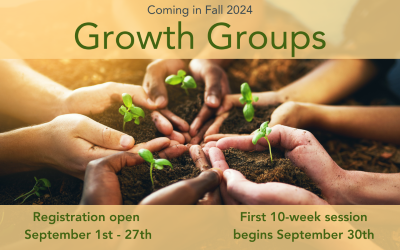[Read Isaiah 6:1-13 and Matthew 13:1-23]
Spiritual Self-Examination:
The parable of the sower (Matthew 13:1-23), aka, the four soils, is “the parable of parables” in the Gospels. Jesus provides an honest answer as to why some hearers “understand” the Gospel and why some don’t. There are famously four basic categories of attitudes:
Unreceptive (=the Word of God that is “snatched” and “devoured” by the Evil One because it can’t take root.)
Superficial (=the Word has an immediate effect but doesn’t last. The speed at which the message seems to take root is the same speed at which it disappears.)
Preoccupied/anxious/distracted (=the Word of God takes roots but, sooner or later, is overtaken by other priorities so that it ends up having zero impact in a person’s life.)
On the surface the parable serves as spiritual self-examination: maybe we find ourselves in one of these categories. But by having true “understanding,” going from just seeing to perceiving, we too might be “blessed” like the inner circle of the disciples (Matthew 13:16). We become receptive, deep, and focused on the Word of God , bearing much fruit = category 4.
A Reality Check:
The other dimension of the parable is the “reality check” Jesus puts before his disciples and us. There is a large crowd that listens to Jesus (Matthew 13:1), but he’s under no illusion as to their level of attentiveness (read Matthew 11-12 to get a sense of the push back Jesus receives). Only the fourth soil is attentive and bears considerable fruit. So here is the unvarnished truth of this famous parable: not everyone will endure and not everyone will pay attention to the Gospel. But, Jesus says, if 1 out of 4 responds, the Gospel is spreading and bearing much fruit. So, by way of illustration, batting .250 is actually not bad!
Hope of the Gospel:
Another dimension to the parable of the sower, seldom discussed, is the context of the quote (Matthew 13:14-15) taken from Isaiah 6:1-13. Isaiah himself got his eyes wide open to the Glory of God and reached a level of attentiveness that simply didn’t exist before. “My eyes have seen the king” (Isaiah 6:5) and out of that revelation and forgiveness, he is commissioned (“here am I, send me” Isaiah 6:8). His ministry will include a lot of rejection and push back, (Isaiah 6:9-10 = Matthew 13:14-15) to be sure, but also fruitfulness. So Isaiah’s own witness is providing us with the below-the-surface application of what Jesus is also teaching in this parable: without a revelation from God, all of us remain unresponsive, superficial, distracted and fruitless (see Ephesians 2:1-10).
Reflections:
If we find ourselves realizing we belong to the first three types of soils, it means the Lord is opening our eyes. It’s a painful realization, (ask Isaiah!) but a great start to this deeper walk with Jesus, bearing much fruit and finding true meaning and fulfillment in life. Let’s pray this prayer together: “Lord open my eyes that I might understand and apply your Word.”
If discussions with your neighbors go nowhere about the things of God and His Word, be patient and persevere and keep praying from them. God is the One opening eyes that are closed. However, we also understand that sharing the Gospel always entails a level rejection. Not everyone will respond to His Word of mercy, grace and forgiveness in Christ. If Jesus the Son of God experienced the pain of rejection from the crowds, we should not be surprised that not everyone we meet will be receptive to the Gospel.





